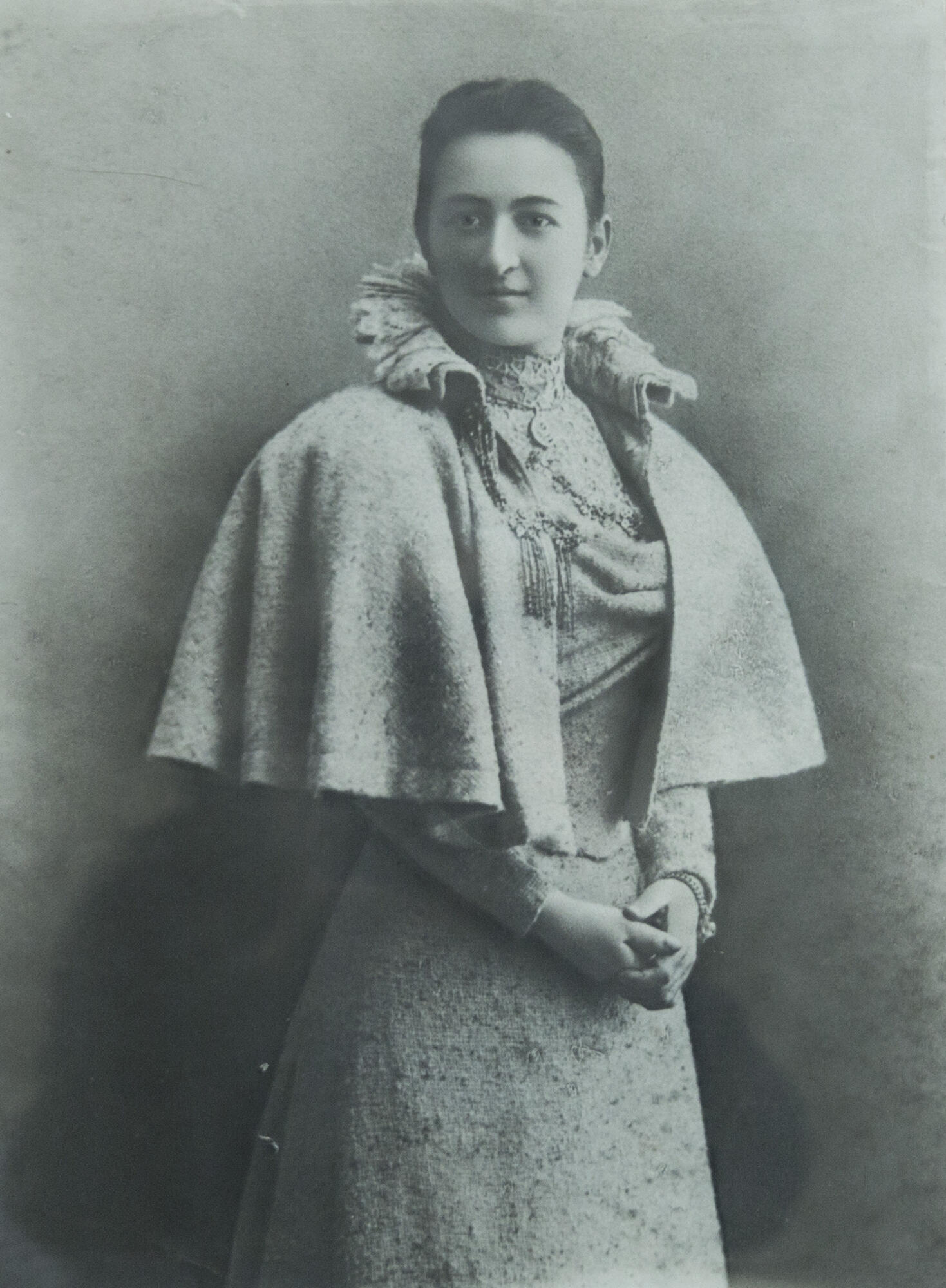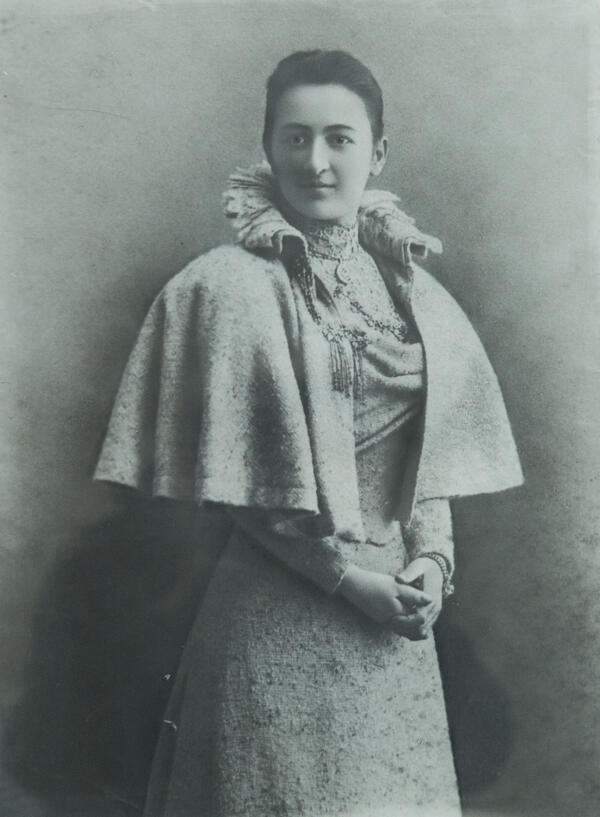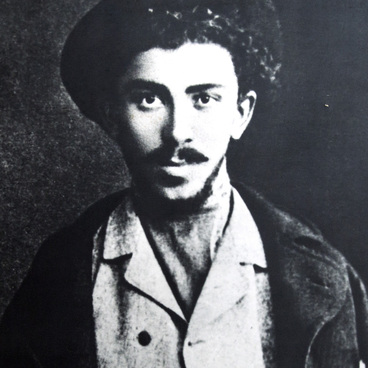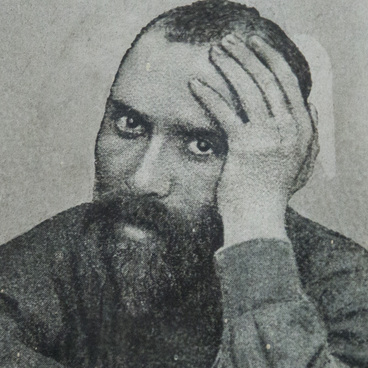In the late 1880s, Khetagurov became close with the Tsalikov family. The poet became close friends with the head of the family, Archpriest Alexander, and his three daughters, Juliana, Elena, and Anna.
The priest’s family supported Khetagurov during a difficult period in his life. According to the Tsalikov sisters' memoirs, in 1888-1889 the poet lived in Vladikavkaz and often moved from place to place, not having his own home. Khetagurov earned a living by painting, portraits in particular, and received an order to do a full-length painting of Emperor Alexander III. However, the room in which Khetagurov nestled was very small, and there the poet/artist couldn’t use a large canvas to work. Then, the brother of Kosta Levanovich’s stepmother, father Sukhiev, asked his brother-in-law Tsalikov to house the painter for at least a month so that he could fulfill the order. Father Alexander agreed, even though his house was currently not only his daughters and mother, but also his brother and brother’s entire family. The priest even gave Khetagurov a room with its own separate entrance.
In the Tsalikov house, Kosta Levanovich finished the emperor’s portrait, but didn’t rush to part with the hospitable family. He ended up living with them for an entire year. During this time, he managed to become a good friend of father Alexander: together, they fought against the closure of the Olginsky Women’s Educational Institution, the sole center for women’s education in Ossetia at that time. The poet also became interested in the archpriests’s youngest daughter, Anna, who was still studying at the gymnasium at that time. This was first noticed by family friend and director of the gymnasium, Viktor Kizer. It was delicately hinted to the tenant that such interest was unacceptable, so he moved out.
However, by that time, Khetagurov’s feelings for Anna had already become serious. The poet was in turmoil, suffering from loneliness and longing, and dedicated the poem ‘Alone, Again Alone Without the Native Ghost…’ to the girl.
The priest’s family supported Khetagurov during a difficult period in his life. According to the Tsalikov sisters' memoirs, in 1888-1889 the poet lived in Vladikavkaz and often moved from place to place, not having his own home. Khetagurov earned a living by painting, portraits in particular, and received an order to do a full-length painting of Emperor Alexander III. However, the room in which Khetagurov nestled was very small, and there the poet/artist couldn’t use a large canvas to work. Then, the brother of Kosta Levanovich’s stepmother, father Sukhiev, asked his brother-in-law Tsalikov to house the painter for at least a month so that he could fulfill the order. Father Alexander agreed, even though his house was currently not only his daughters and mother, but also his brother and brother’s entire family. The priest even gave Khetagurov a room with its own separate entrance.
In the Tsalikov house, Kosta Levanovich finished the emperor’s portrait, but didn’t rush to part with the hospitable family. He ended up living with them for an entire year. During this time, he managed to become a good friend of father Alexander: together, they fought against the closure of the Olginsky Women’s Educational Institution, the sole center for women’s education in Ossetia at that time. The poet also became interested in the archpriests’s youngest daughter, Anna, who was still studying at the gymnasium at that time. This was first noticed by family friend and director of the gymnasium, Viktor Kizer. It was delicately hinted to the tenant that such interest was unacceptable, so he moved out.
However, by that time, Khetagurov’s feelings for Anna had already become serious. The poet was in turmoil, suffering from loneliness and longing, and dedicated the poem ‘Alone, Again Alone Without the Native Ghost…’ to the girl.



